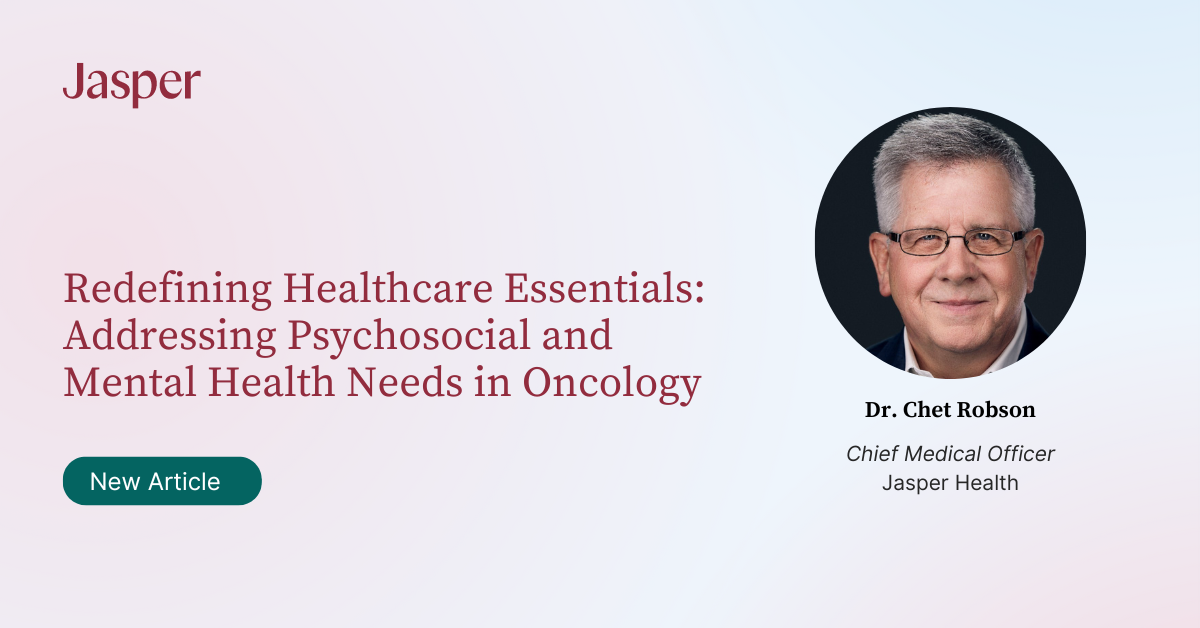Redefining Healthcare Essentials: Addressing Psychosocial and Mental Health Needs in Oncology


Written by Dr. Chet Robson, Chief Medical Officer, Jasper Health
Too often in healthcare we think of medications, surgeries, and procedures as “essential” and psychosocial, SDOH, or mental health as “nice to have.” Certainly to impact disease, medications, surgeries, and procedures are essential; however, failure to evaluate and address the psychosocial, SDOH or mental health needs of patients can derail the medical interventions. Factors such as hopelessness, lack of transportation, or depression can lead to non-compliance with medications, treatments, or appointments and ultimately suboptimal outcomes at great expense. Fear, confusion, and anxiety lead to unnecessary use of EDs, office visits, testing and hospitalizations.
In the area of oncology this is especially true. Studies have shown 20 – 61% of oncology patients show a significant level of distress that can impact their medical care and outcomes.1 This is why as early as 1999 the NCCN established guidelines for the screening, treatment, and management of psychosocial distress. These guidelines were re-evaluated and strongly recommended by the National Academy of Medicine in 2007 and required for hospital cancer programs by the Council on Cancer of the American College of Surgeons in 2015. Finally, in 2024, codes for principal illness navigation allowing for ongoing navigation and support by such evidence-based guidelines provide a pathway for reimbursement. The Oncology Nursing Standards for Professional Practice lay out a strong structure and delivery model. The Association of Oncology Social Workers, and American Cancer Society LION Navigation program provide ongoing training, certification and quality improvement. All of these resources easily articulate with the field of Psycho-Oncology for higher level mental health needs to provide a full spectrum to meet psychosocial, SDOH and mental health needs.
An additional challenge beyond acceptance and adoption has been continuity of care. Partially because of a lack of reimbursement, but staffing shortages and lack of technology to maintain support and navigation once a patient leaves the treatment facility and staff, is also a common occurrence. Jasper Health has solved those challenges by employing a full staff of social workers, navigation aids, and oncology nurses with connections to psycho-oncology doctors when needed. Utilizing both telemedicine and the digital app, Jasper’s Care Companion, patients and their navigators stay connected in whichever way the patient prefers. Combining both in-person and digital connection reassures the patient of regular, dependable access. Jasper Health education, support for psychosocial needs, navigation of the health system, and connection to the patient’s care team have demonstrated more engaged and satisfied patients with better self-reported outcomes.
Management of psychosocial needs, SDOH, and mental health are not only nice to have, but are also essential to better outcomes, lower costs, and patient-desired outcomes.
1https://www.nccn.org/professionals/physician_gls/pdf/distress.pdf